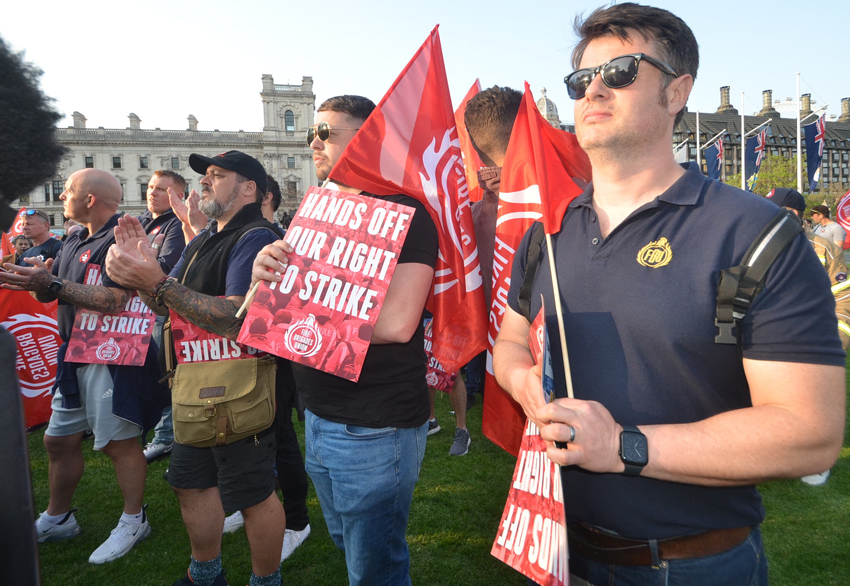THE FBU (Fire Brigades Union) has called on all fire service employers to refuse to implement the government’s new minimum service levels, condemning the legislation as a ‘draconian attempt to ban strikes’.
In a letter sent to all fire service employers in England, the FBU warns that implementing work notices will ‘irreparably damage’ industrial relations and threaten public safety.
New regulations issued as part of the Minimum Service Levels (Strikes) Act will give fire service employers power to issue ‘work notices’ during periods of strike action.
‘Minimum service’ in the fire and rescue sector has been set at 73% of fire engines crewed, while control rooms will be expected to operate as if no strike was happening.
Firefighters, control staff and other fire service employees could face dismissal for remaining on strike during a period of industrial action once a work notice has been issued.
The regulations are expected to be approved by parliament soon. They will apply only in England.
The governments of Scotland and Wales have already said that they will not issue work notices and/or that they have no intention of introducing their own regulations to make the legislation operative.
Fire service employers are different, depending on the region, and include fire authorities, police, fire and crime commissioners (PFCCs); mayors, and devolved administrations.
Matt Wrack, FBU general secretary, said: ‘The government’s minimum service levels amount to a draconian attempt to ban firefighters and control staff from taking strike action.
‘This is an attack on the fundamental democratic rights of fire service employees.
‘Each fire service employer will have the power to decide whether to threaten their workforce with the sack during a period of strike action.
‘The FBU calls on all employers to make it clear that they will refuse to issue work notices, rendering the new laws inoperable in their local fire and rescue service.
‘They should agree not to dismiss or take any disciplinary action against any employee for taking part in strike action.’
